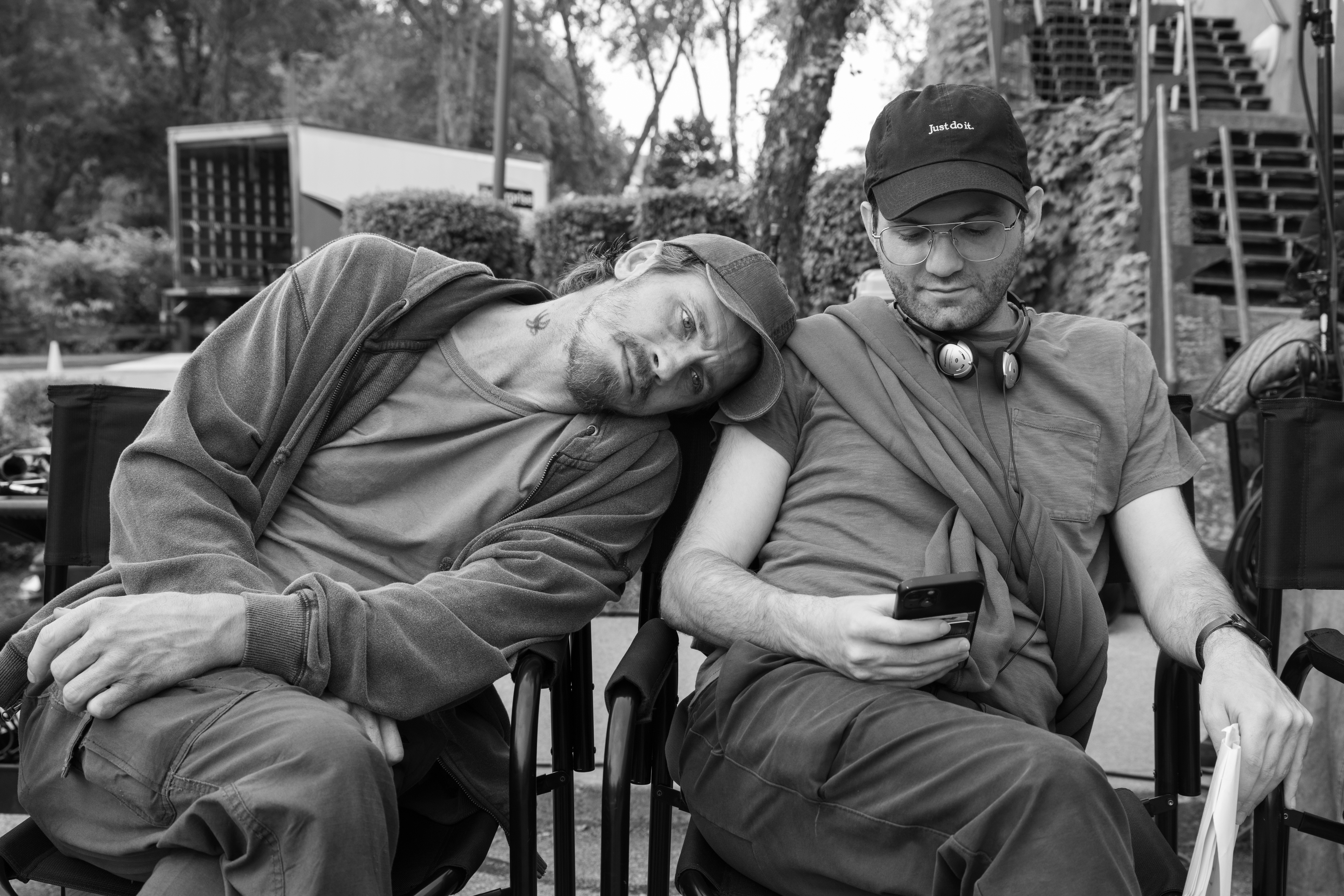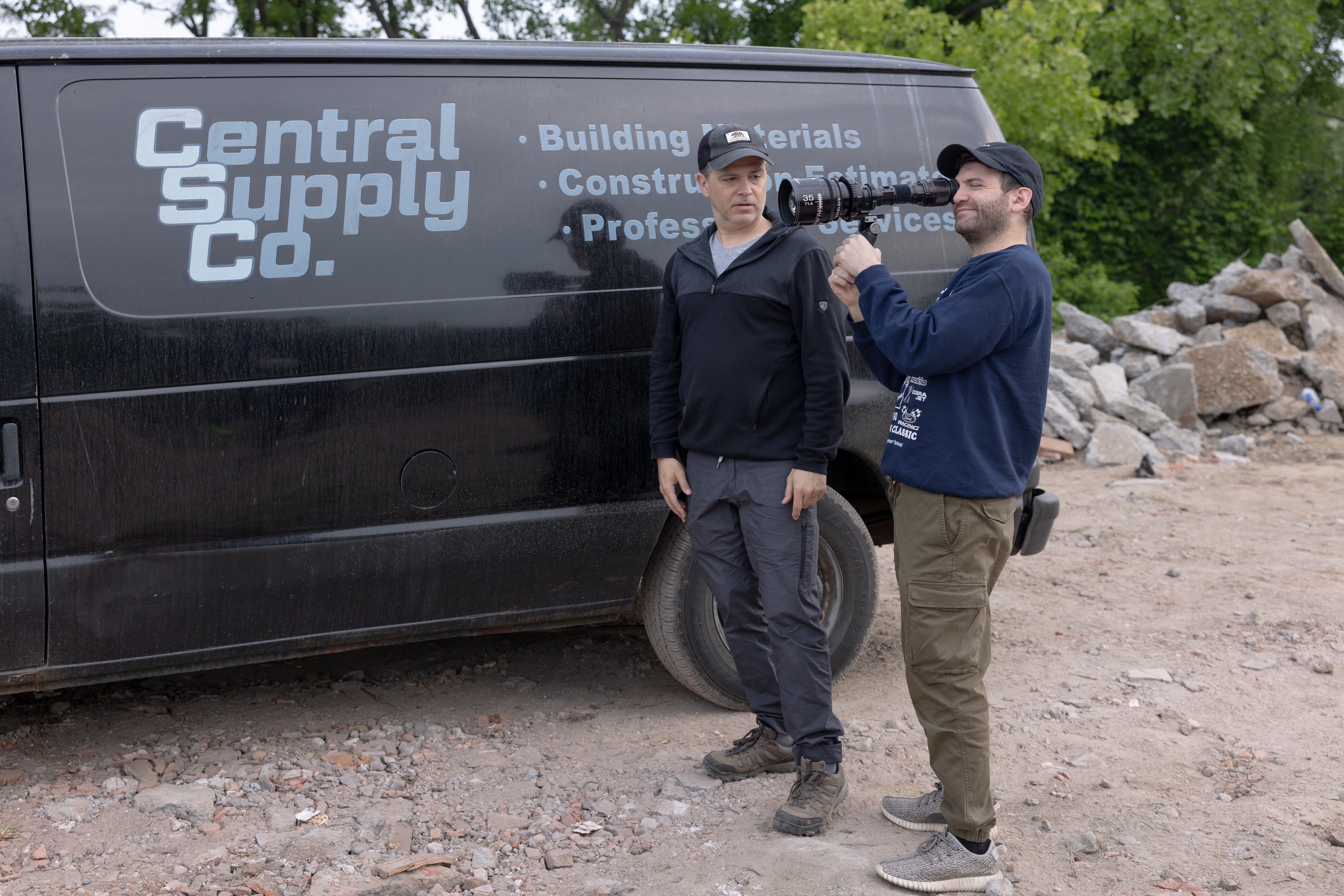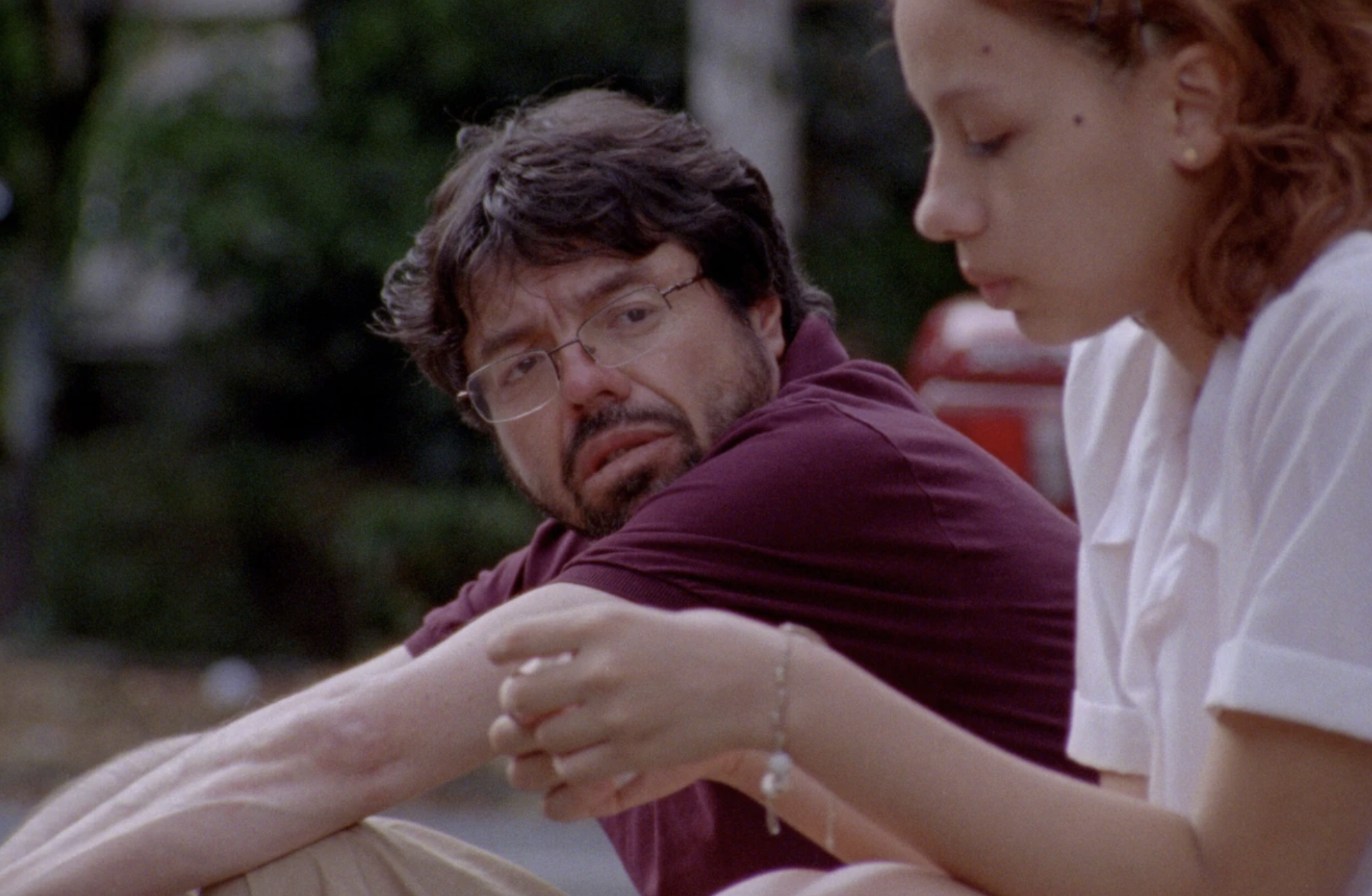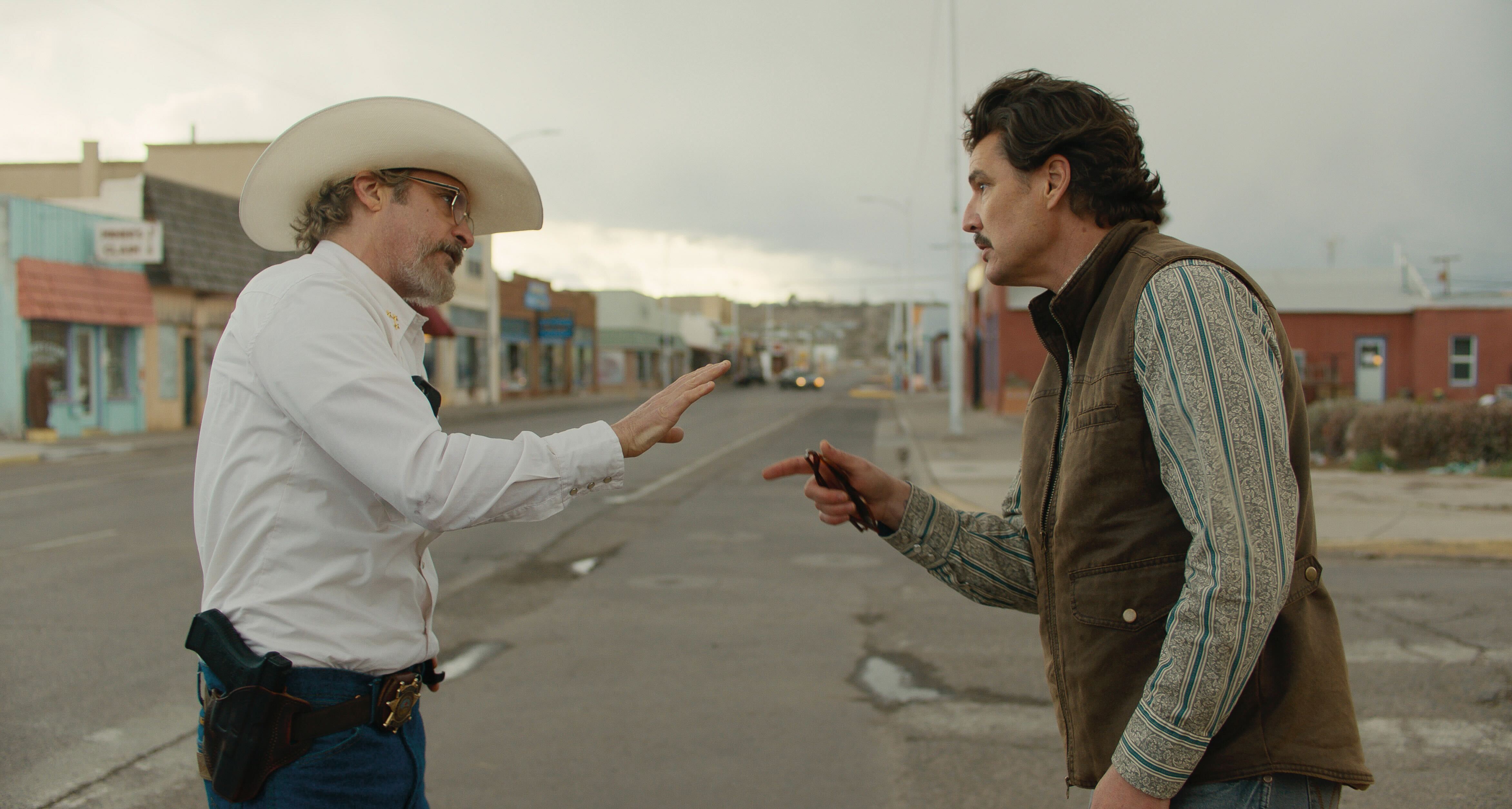Becoming a feature director in today’s media environment takes work. It takes grit and suffering and determination, but more than anything else, it takes work. Sometimes years of it, sometimes months, and sometimes days that feel like months.
So why do it?
As writer/director Evan Ari Kelman explained to IndieWire’s Future of Filmmaking, love will make you put in more effort than you think you’re capable of. His feature debut “Barron’s Cove,” which releases in select theaters and on VOD Friday, June 6, reflects this sentiment, unraveling a tragic tale of a fathers and sons and the thin line between vengeance and redemption. It’s not your standard indie, as it features multiple locations, an A-list cast — Garrett Hedlund, Brittany Snow, Stephen Lang, Raúl Castillo, Tramell Tillman, and Hamish Linklater — weapons, explosions, and a child at the center of its mystery.
Kelman’s filmmaking journey started almost exactly a decade ago with his student short “Bandito” screening at the Tribeca Film Festival. In the time since, he has built a career in commercial directing while also dedicating space to personal short films that would continue to land at festivals here and abroad. Things really started picking up steam for his career when the script for “Barron’s Cove” earned a semi-finalist spot for the prestigious Academy Nicholl Fellowship and even landed on the 2021 Black List. Though Kelman admits he got “lucky” in many ways, what his path demonstrates is that if you put in the work, the pay-off will come.
Kelman did admit, however, that the path is “constantly changing” beneath our feet and how he broke in may not be the best strategy or even still viable for others in today’s landscape. Even so, Kelman still has a wealth of experience to share, particularly from his recent venture bringing “Barron’s Cove” to life.
As he told IndieWire’s Future of Filmmaking, “I’m walking out of the trenches and I’ve got the scars to prove it, as every independent filmmaker does.”
The following interview has been edited and condensed for length and clarity.

IndieWire: What do you wish you knew going into the making of “Barron’s Cove,” but that making it could only teach you?
Evan Ari Kelman: Literally where to begin. It’s an absolutely massive question because there’s so many dynamics. You’ve got the practical mechanics of like, “OK, how do you actually make a film?” And, “What is it like to be on set?” And, “What do you prioritize when there’s 10 things that you wanna fix or adjust and you only have time for two things? How do you prioritize? How do you balance those priorities across an entire shoot? How do you work with individual department heads?”
Then you have a lot of the behind the scenes politics, “How do you work with a number of producers who all have different responsibilities and different priorities? How do you negotiate with them? How do you compromise?” The list is endless. It’s almost impossible to describe until you go through it. I’m not the same person that I was when I started this process. It’s almost like 30 years of grad school compressed into a very short timeline.
What’s the best approach to working with the range of actors you have on this project? Did you find yourself adapting to the individual or did you have more of a uniform approach?
First and foremost, there are a few things that you absolutely have to have: A specificity of your vision, you have to know what story you’re trying to tell, why you’re telling it. That doesn’t mean that there isn’t room for questions and for dialogue with your actors about who their characters are and building something authentic with them, but you’re the authority on your story, on your world, on those characters, on the backstory. Then from there, there are certain adaptations that you have depending on the performer. That was definitely something I learned. We had an incredible cast list on this film and each individual was so different in their approach, so you have to be really flexible.
It starts with having that core set of confidence and knowledge, being the authority, and then you have to be very attuned to the individual, how do they work best? And they might not always say, “Hey, here’s how I work.” You have to be intuitive and pick up on, do they need more support? Do they want more collaboration, or is it more of a handoff, where you’ve given them everything you can and then it’s theirs? You have to be very strategic about your feedback.
Do you feel there’s less pressure when you’re starting out because you’re not defined yet? Does not having to live up to the standard of like David Fincher allow for some peace of mind?
I would almost argue the opposite. David Fincher is famous now for doing 50 [or more] takes. So he actually has the flexibility to try a lot of things and to ask a lot of his actors [and say], “Let go again.” The big directors, they can ask for a lot more, not just from the performers, but from the producers, in terms of time. The sort of irony of being an independent filmmaker, and especially first-time feature directors, you actually don’t get all of that opportunity that David Fincher has. I don’t have more flexibility. I have significantly less. I have less time to do everything.
Nobody got annoyed with me, but you can sense, you’re a first-time feature director, you’re working with these incredible actors, they’re coming off of major sets with major directors, and it’s not that there’s a tension there, but you can’t do 30 takes. First of all, you don’t have time, and second of all, the actors don’t necessarily want to do that. By the way, they don’t want to do it for Fincher either.
Your first short film, “Bandito,” played at the Tribeca Film Festival almost exactly 10 years ago. Since then, you’ve built a career in commercials, continued to direct more shorts, landed on The Black List, and been a semifinalist for the Academy Nicholl Fellowship with the script for “Barron’s Cove.” This is a very traditional pathway that seems to have paid off for you, but is it one you’d recommend for others looking to work their way to their feature debut?
I’d probably recommend another direction, honestly. I got really lucky. You definitely need the short films. I don’t think anyone would have let me direct this film or put millions of dollars into this film if I didn’t have successful short films that had premiered at major festivals. I’ve worked with big brands, I’ve done a lot of commercials, so people understood that I can handle responsibility, that I know how to work at a professional level, that I can handle a budget, that I can handle a schedule, all of these things. those things are really important if you’re getting a lot of money.

If I were to do this again, I think a much more reliable approach would be to make a smaller, less expensive film, maybe with less well-known talent, maybe with a more indie scope so that you can do something on the weekends with your friends and you don’t have to worry about every little thing. This was a union film and there’s all kinds of limitations that suddenly arrive in front of you, like on the day, that you didn’t know. I remember there were lines that I was having background actors say, kind of saying like a throwaway line, and on the day the producers came to me and they go, “Hey, that actor can’t say that line because then we have to pay him more.”
At a [truly] indie level, you don’t have to worry about that. Like from my hotel room in Massachusetts, there was this beautiful shot of the city that I thought, “Oh, this would be the easiest thing to get.” Even on my commercials, which can be a little bit indie feeling — just get the camera in here and just shoot it. But once you have a union crew, you actually can’t do that. You can’t shoot outside of the hours and people are working at a certain time. It’s a lot more legitimate, which comes with a lot of restrictions as well.
What would you not have known in the making of “Barron’s Cove,” had you not followed that specific path?
I had to fail a lot along the way, and I learned a lot through that. Like the first movie that I wrote that I sent out to producers, that I’ve worked really hard to try to get made, was totally unfeasible. For reasons I understand now that I didn’t understand at the time I wrote it. I wrote a biopic about someone who isn’t mega famous and it’s a period piece. You kind of assume like, “Oh, yeah, it’s a great story, why couldn’t it get made?” But then you have to learn why and learn more about the industry and why movies get financed and what producers are looking for.
Also, I tried everything to avoid writing an original feature film. I looked for books to adapt. I looked for short stories to adapt. I met with co-writers to help me break ideas, and I wasted a couple of years basically looking for a shortcut. And I got to the point where I’m like, “OK, there is no shortcut, I have to do this myself,” and I read every single book I could on screenwriting, and I got as deep into the weeds as I could and understood the mechanics as well as I possibly could, and that was a lot of hard work.
Was that work worth it in the end?
I want to keep things positive. I’m basically saying it’s really tough and this and that, but the most important thing I think is don’t give up, and learn how the current system works. Learn the market, learn what is being greenlit and why. I had so many moments where I thought the film was gonna fall apart for a lot of reasons. It’s an emotional rollercoaster, and at any point, I could have quit, but you just have to keep going. It is possible. The maze is changing live and the staircases are moving, but don’t give up.
Can you share a moment from this production where you realized you had to deviate from your initial conception or how you wanted to do things? And how did you adapt in that moment?
Every single hour of every single day you’re running into that situation and what’s really intense is when you wake up in the morning, you don’t always know what that’s gonna be. You’re suiting up for a day of surprises. Yeah, you have a plan, but very often that plan goes out the window because of all kinds of things. Somebody parked in the wrong place and now the equipment can’t come here in time, etc. The one moment that really comes to mind right now is there’s a scene towards the end of the movie where Hamish is giving a victory speech, or about to give a victory speech. That was originally written to be on the stage of this beautiful amphitheater and as we’re scouting, we’re told that the stage is set for a graduation the next day and we can’t touch it and no one can go on the stage.
So I’m like, “OK, how do we have this like climactic moment if you can’t be on stage and we can’t even go down there, what are we gonna do?” And we actually found a solution that I think made it a lot more dynamic, which is that we put him in the balcony looking at the stage, and we were able to create this dramatic moment. We did this cool thing where he’s about to go on and the spotlight hits the stage, and it’s coming down behind him hitting the podium. That kind of intensity of this thing about to happen was a lot more of an exciting moment than had he already been up there. Those are the opportunities you have to look for when what you initially had envisioned isn’t possible. And again, that’s happening multiple times a day.
“Barron’s Cove” releases in theaters and on VOD Friday, June 6 from Well Go USA Entertainment.



